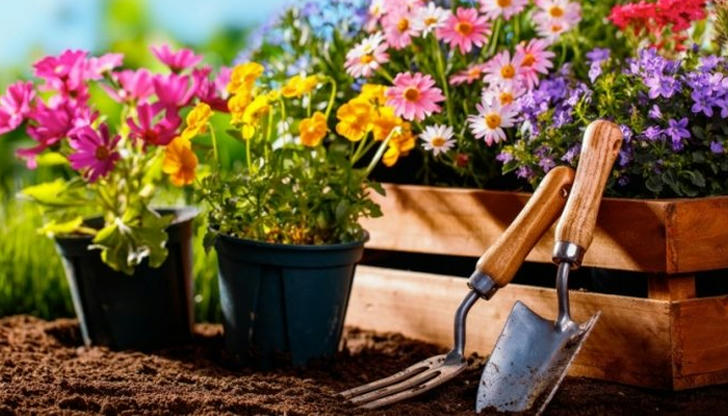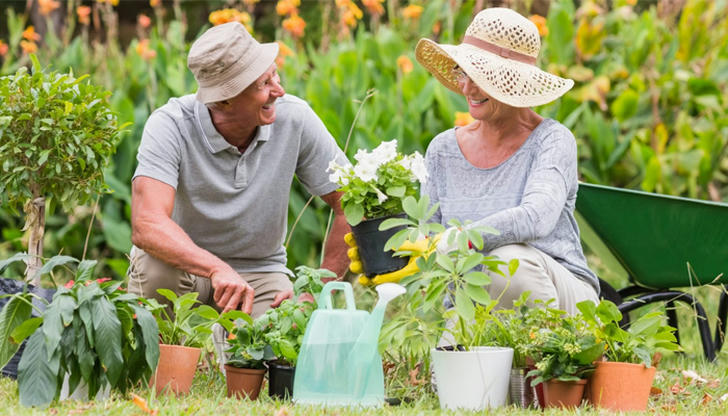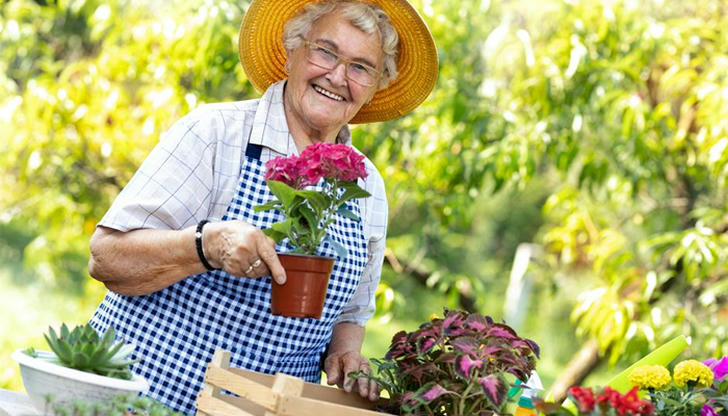Sowing the Seeds of Health: How Does Gardening Boost Your Mental and Physical Health?
The science-backed reasons of how this outdoor activity improves your well-being

Garden is the special peaceful spaces. Through the centuries, people always loved cultivating their outdoor space for relaxing, enjoying, and most importantly, connecting with nature and each other. We enjoy hours of fun on sowing, planting, and harvest with bountiful bouquets. But did you know gardening also can do wonders for your well-being? Science is filling in the how and why.
From boosting your immune system to protecting your brain health, here’s the amazing health benefits that gardening offers.
Physical Health

Gardening is a great form of aerobic exercise that helps burn calories and fat, improving overall health, and help patients recover from trauma more quickly. In addition to providing fresh herbs and veggies for our dining table and bountiful flowers to decor, gardening can boost our immunity and lower our risk of a host of diseases including headaches, eye irritation, fatigue and the flu.
In an early study, environmental health experts found that planting has many positive effects on brain activity, blood pressure and heart activity.
Gardening burns a lot of calories: Good news for those who already spend hours planting, Gardening is a moderate intensity physical activity that strengthens your bones and muscles. Your calories have been burning all the way while you are doing raking, shoveling and wheelbarrow. Study shows that half an hour of gardening can burn between 200 and 400 calories per hour. Best part of all: you don’t even have to leave the comfort of your own home!
Help build stronger bones and muscles Gardening is an invisible physical activity, where lift, squat, push, pull, and pedal are involved. It enhances health, increases caloric expenditure, strengthens muscles and bones, as well as supporting balance and endurance. Research shows that older adults who garden often have better hand strength and pinch force, self-esteem and overall physical health.
Keep hands strong and nimble: A Study has found that older adults who garden frequently have stronger hand strength and pinch strength and more flexible fingers. When you're gardening, your nimble are almost always trained as each move.
Raise vitamin D levels: A study in 2014 found that exposure to sunlight helps older adults achieve adequate serum vitamin D levels. When exposed to sunlight, the skin metabolizes vitamin D, which is one of the main ways the vitamin is produced. Vitamin D is essential for many bodily functions and has proven effective to lower blood pressure and improve bone strength and brain function. So outdoor activities like gardening are the perfect way to get some sunshine while pursuing a fun hobby. (But don't forget wear sunscreen to protect your skin)
Blood pressure: Houseplants have positive effects on lower blood pressure. The researchers found that people's diastolic blood pressure decreased significantly after gardening.
Improve your immune system: Nothing improves your immune system and overall health like fresh fruits and vegetables. Gardeners who eat more vegetables and fruits can improve nutrition, promote health and prevent disease.
Mental Health

Reduce stress: Gardening improves your mood by lowering levels of the stress hormone cortisol. Watering plants also gives you a chance to step away from your daily responsibilities and relax. It’s a low-maintenance hobby that can help you de-stress. You can start with a small garden in your backyard or balcony or go with a container garden on your desk at work. You can also plant flowers in pots around your house to help reduce stress.
Decreased dementia risk: A study in the Journal of Alzheimer’s Disease found that people with mild cognitive impairment who gardened for 6 months saw improvements in their condition. In fact, spending time outside in nature can help lower your risk of dementia and Alzheimer’s disease by 36%.
Boost memory and concentration: More than just good exercise for your body, gardening can also sharpen your brain.
Help combat loneliness: On one hand, studies have shown that fresh air is beneficial for clearing the lungs, improving circulation, and providing greater energy and vitality. Increased oxygen intake helps increase brain levels of serotonin, a neurotransmitter nicknamed the“feel-good” hormone serotonin because it fights anxiety and depression and helps maintain a healthy emotional state and overall well-being.
On the other hand, gardening is a great way to connect you with your family and your community. Even if you garden by yourself in your backyard, you’ll connect with others when you share the inevitable bounty from your vegetable garden.

